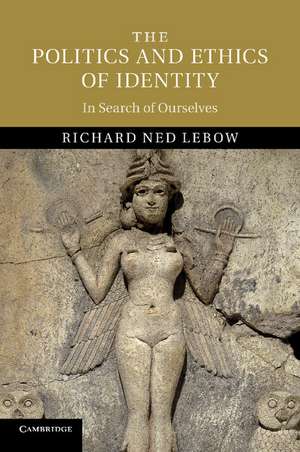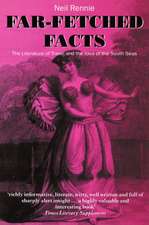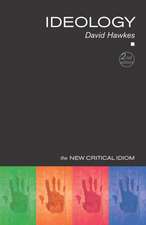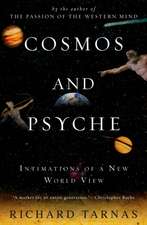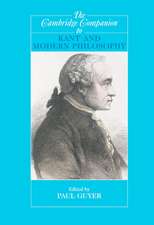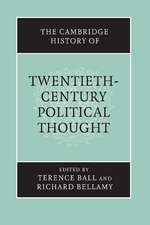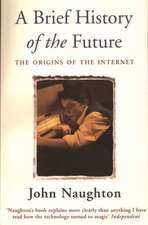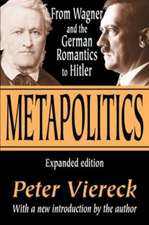The Politics and Ethics of Identity: In Search of Ourselves
Autor Richard Ned Lebowen Limba Engleză Paperback – 19 mar 2014
| Toate formatele și edițiile | Preț | Express |
|---|---|---|
| Paperback (1) | 312.46 lei 6-8 săpt. | |
| Cambridge University Press – 19 mar 2014 | 312.46 lei 6-8 săpt. | |
| Hardback (1) | 797.74 lei 6-8 săpt. | |
| Cambridge University Press – 29 aug 2012 | 797.74 lei 6-8 săpt. |
Preț: 312.46 lei
Nou
Puncte Express: 469
Preț estimativ în valută:
59.80€ • 64.93$ • 50.23£
59.80€ • 64.93$ • 50.23£
Carte tipărită la comandă
Livrare economică 23 aprilie-07 mai
Preluare comenzi: 021 569.72.76
Specificații
ISBN-13: 9781107675575
ISBN-10: 110767557X
Pagini: 444
Dimensiuni: 152 x 229 x 23 mm
Greutate: 0.59 kg
Editura: Cambridge University Press
Colecția Cambridge University Press
Locul publicării:New York, United States
ISBN-10: 110767557X
Pagini: 444
Dimensiuni: 152 x 229 x 23 mm
Greutate: 0.59 kg
Editura: Cambridge University Press
Colecția Cambridge University Press
Locul publicării:New York, United States
Cuprins
1. Introduction; 2. Narratives and identity; 3. Homer, Virgil, and identity; 4. Mozart and the Enlightenment; 5. Germans and Greeks; 6. Beam me up, Lord; 7. Science fiction and immortality; 8. Identity reconsidered.
Recenzii
'In this remarkable book, Lebow offers a sustained critique of contemporary conceptions of identity in the social sciences, arguing that both the existence of unitary identities and the differential logic invoked to explain their formation lack empirical support. [He] then develops an alternative account that emphasizes the fluid character of identities, and the integrative aspects of identity formation. As such, The Politics and Ethics of Identity is indispensable reading to all social scientists who have thought seriously about identity.' Jens Bartelson, Lund University
'The Politics and Ethics of Identity is both enlightening and unsettling in equal measures. With characteristic breadth, sophistication and originality, Lebow provides a vibrant and compelling account of identity (or, more accurately, identities) in historical perspective. He then employs this account to challenge prevalent conceptions of politics and ethics - making a profoundly important contribution to our understanding of both.' Toni Erskine, Aberystwyth University
'Ned Lebow has a deserved reputation for tackling hard questions that require the resources of many disciplines to properly ask, let alone answer. In this, his most ambitious study yet, he combines social science, psychology, intellectual history, literary and even musical criticism to illuminate the character and significance of identity in the modern world. At the heart of the inquiry is [his] analysis of four distinct strategies of identity construction and the four distinct political orientations they provide the underpinnings for: conservatism, totalitarianism, liberalism and anarchism, and the question he ponders following on from this: whether we can dispense with claims about unitary and consistent identities and what would follow, ethically and politically, if we did. A powerful and challenging study by a major contemporary theorist at the top of his game.' Nicholas Rengger, University of St Andrews
'The Politics and Ethics of Identity is both enlightening and unsettling in equal measures. With characteristic breadth, sophistication and originality, Lebow provides a vibrant and compelling account of identity (or, more accurately, identities) in historical perspective. He then employs this account to challenge prevalent conceptions of politics and ethics - making a profoundly important contribution to our understanding of both.' Toni Erskine, Aberystwyth University
'Ned Lebow has a deserved reputation for tackling hard questions that require the resources of many disciplines to properly ask, let alone answer. In this, his most ambitious study yet, he combines social science, psychology, intellectual history, literary and even musical criticism to illuminate the character and significance of identity in the modern world. At the heart of the inquiry is [his] analysis of four distinct strategies of identity construction and the four distinct political orientations they provide the underpinnings for: conservatism, totalitarianism, liberalism and anarchism, and the question he ponders following on from this: whether we can dispense with claims about unitary and consistent identities and what would follow, ethically and politically, if we did. A powerful and challenging study by a major contemporary theorist at the top of his game.' Nicholas Rengger, University of St Andrews
Notă biografică
Descriere
Challenges the notion of consistent unitary identities, arguing that we are multiple, changing selves, shaped by social contexts and processes.
